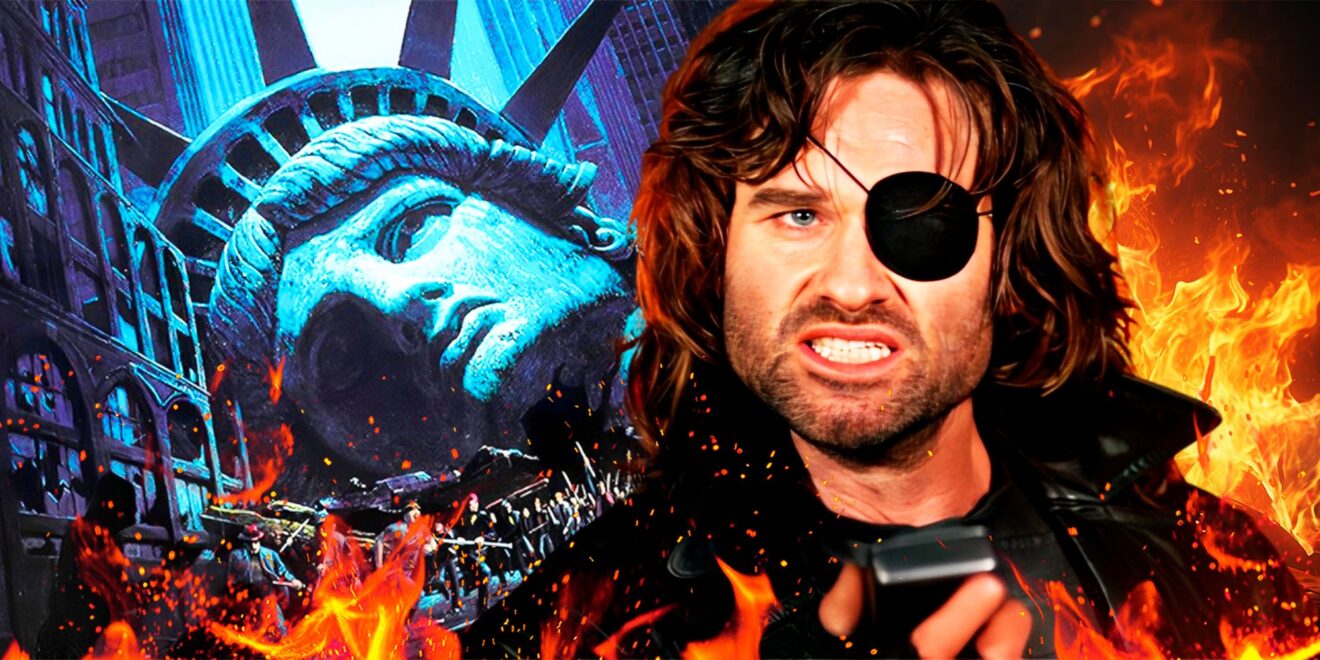Remember that time you saw a movie so good you immediately wanted to revisit it, only to find a shiny, new remake looming on the horizon? That feeling of hesitant excitement mixed with a dash of “why fix what ain’t broken?”? Yeah, that’s how fans felt when whispers of a reboot for Kurt Russell’s 1981 action classic (which, by the way, boasts an impressive 86% on Rotten Tomatoes!) started circulating. But hold onto your hats, folks, because the latest news is a sigh of relief for cinephiles everywhere: the remake is officially off the table! Buckle up as we dive into why this news has us doing a happy dance and celebrate the enduring legacy of the original.
Escape From New York: Why a Reboot is For the Best
The Enduring Legacy of a Cult Classic

Escape from New York, John Carpenter’s 1981 action masterpiece, holds a special place in cinematic history. With its grimy dystopian setting, Kurt Russell’s iconic portrayal of Snake Plissken, and a plot both thrilling and thought-provoking, the film has become a cult classic, securing a remarkable 86% approval rating on Rotten Tomatoes. The enduring appeal of Escape from New York lies in its ability to blend gritty realism with over-the-top action, creating a unique and unforgettable cinematic experience.
Carpenter’s direction is masterful, perfectly capturing the bleak and oppressive atmosphere of a future New York transformed into a maximum-security prison. The film’s influence on subsequent action movies is undeniable, with its gritty aesthetic, cynical hero, and innovative use of practical effects paving the way for countless imitators. From the neon-lit streets of Blade Runner to the desolate landscapes of Mad Max, Escape from New York’s visual language continues to inspire filmmakers today.
A Journey Through Development Hell
Despite its critical acclaim and enduring popularity, Escape from New York has been plagued by development hell for decades. Numerous attempts to reboot or remake the classic have been made, each with its own unique vision and creative differences from the original film.
The proposed reboots have often veered away from the core elements that made the original so successful. Joel Silver’s ambitious trilogy plan, for instance, sought to explore Snake Plissken’s backstory, revealing how he lost his iconic eye. Other scripts, such as the one penned by Neil Cross for director Robert Rodriguez, envisioned a gleaming utopia overrun by terrorists and drones, a far cry from the grimy, claustrophobic world of Carpenter’s original.
These creative differences, coupled with studio interference and directorial changes, have ultimately contributed to the numerous delays and cancellations that have plagued the Escape from New York reboot. After years of false starts and abandoned projects, the latest candidate to helm the project, Leigh Whannell, has confirmed that the reboot is “not happening” for now.
Why a Remake Would Fall Flat
The charm of Escape from New York lies in its unique blend of gritty realism and over-the-top action. This delicate balance was achieved through Carpenter’s masterful direction and Russell’s iconic performance. A big-budget reboot, with its emphasis on spectacle and special effects, risks losing this essential element, turning a gritty masterpiece into a generic action flick.
Furthermore, finding an actor who can embody the cynicism, wit, and sheer coolness of Snake Plissken would be a daunting task. Kurt Russell’s performance is so iconic that it would be nearly impossible to cast someone who could live up to the legend. Any attempt to recreate the role would likely fall flat, leaving audiences longing for the original.
Updating the story for a modern audience also poses a significant challenge. While the themes of societal decay and governmental overreach remain relevant today, simply transplanting the original narrative into a contemporary setting would feel forced and contrived. A successful reboot would need to grapple with these themes in a fresh and meaningful way, something that feels unlikely given the creative inconsistencies that have plagued previous attempts.
The Buffy the Vampire Slayer Reboot: A Second Chance at Slayerdom
The Undying Appeal of Buffy
Buffy the Vampire Slayer, which aired from 1997 to 2003, continues to resonate with audiences decades after its conclusion. The series, created by Joss Whedon, captured the hearts of viewers with its compelling blend of action, horror, humor, and heartfelt drama.
Buffy Summers, a seemingly ordinary teenage girl chosen to be the “Slayer,” a warrior destined to battle vampires, demons, and the forces of darkness, became an icon. The show’s enduring themes of female empowerment, coming-of-age, and battling inner demons continue to resonate with audiences of all ages, solidifying its place as a cultural touchstone.
The Pitfalls of Reboot Culture
While reboots have become a common trend in both film and television, not all reboots are created equal. Some reboots manage to capture the essence of the original while introducing fresh perspectives and storylines. Others, however, fall flat, relying on nostalgia and familiar tropes without offering anything truly innovative or meaningful.
The danger of reboot culture lies in the risk of simply rehashing old ideas without adding anything new or substantial. A successful reboot requires a deep understanding of the source material and a willingness to build upon its strengths while exploring new territory.
Jane Schoenbrun: The Unexpected Savior?
Amidst the wave of rumored Buffy the Vampire Slayer reboots, one name stands out: Jane Schoenbrun. Schoenbrun, known for their critically acclaimed 2024 horror film “I Saw the TV Glow,” possesses a unique vision that could breathe new life into the beloved franchise.
Schoenbrun’s films are characterized by their thoughtful exploration of themes of isolation, identity, and the blurring lines between reality and fiction. Their ability to blend horror, humor, and social commentary in a way that is both unsettling and thought-provoking suggests a fresh perspective that could revitalize Buffy for a new generation.
Schoenbrun’s interest in the Buffy the Vampire Slayer reboot stems from their deep admiration for the original series, but they also recognize the potential to build upon its legacy while exploring new and uncharted territory.
Conclusion
So there you have it, folks. The rumored remake of Kurt Russell’s beloved 1981 action flick, boasting a near-perfect 86% on Rotten Tomatoes, has officially been shelved. While the initial news might have sent shockwaves through nostalgic action fans, a closer look reveals that this cancellation might be the best thing for both the original film and its potential successors. The article delves into the pitfalls of remaking classics, highlighting how creative liberties often stray too far from the source material, diminishing the charm and impact of the original. The decision to scrap this remake serves as a valuable reminder that some stories are best left undisturbed, their legacy intact. It underscores the importance of recognizing the inherent value of original works and the undeniable influence they hold on subsequent generations of filmmakers and audiences. Perhaps this cancellation will pave the way for more innovative and original projects, allowing filmmakers to forge their own paths rather than chasing the ghosts of cinematic pasts. The future of action cinema lies not in rehashing old glories, but in embracing fresh stories and bold visions. After all, the true magic of cinema lies in its ability to transport us to new worlds, ignite our imaginations, and leave us wanting more.







Add Comment